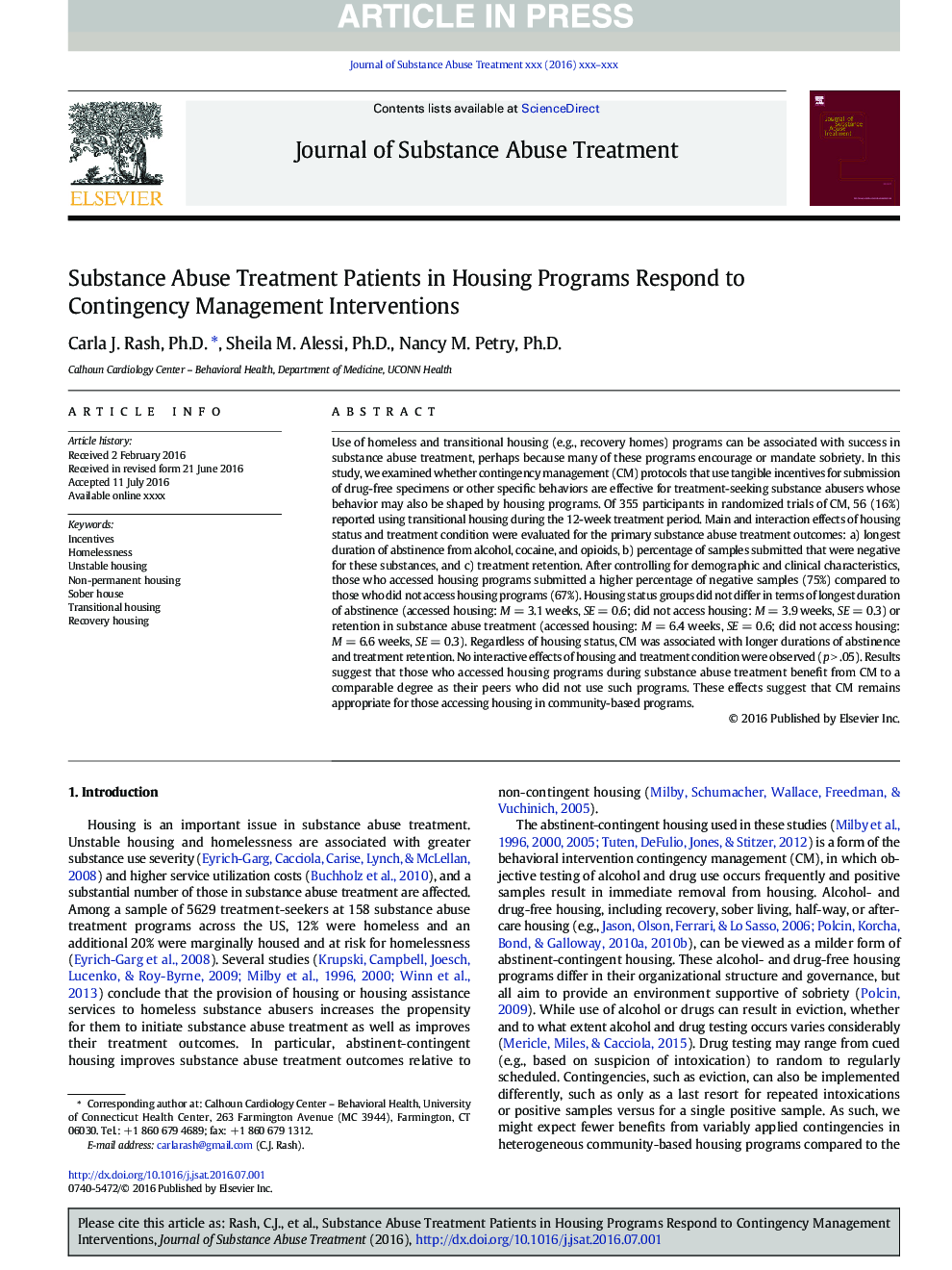| کد مقاله | کد نشریه | سال انتشار | مقاله انگلیسی | نسخه تمام متن |
|---|---|---|---|---|
| 4932416 | 1433373 | 2017 | 6 صفحه PDF | دانلود رایگان |
عنوان انگلیسی مقاله ISI
Substance Abuse Treatment Patients in Housing Programs Respond to Contingency Management Interventions
ترجمه فارسی عنوان
بیماران درمان سوء مصرف مواد در برنامه های مسکن به مداخلات مدیریت احتمالی پاسخ می دهند
دانلود مقاله + سفارش ترجمه
دانلود مقاله ISI انگلیسی
رایگان برای ایرانیان
کلمات کلیدی
انگیزه، بی خانمانی، مسکن نامناسب، مسکن غیر دائمی، خانه ای آرام، مسکن گذار، مسکن بازیابی
موضوعات مرتبط
علوم زیستی و بیوفناوری
علم عصب شناسی
روانپزشکی بیولوژیکی
چکیده انگلیسی
Use of homeless and transitional housing (e.g., recovery homes) programs can be associated with success in substance abuse treatment, perhaps because many of these programs encourage or mandate sobriety. In this study, we examined whether contingency management (CM) protocols that use tangible incentives for submission of drug-free specimens or other specific behaviors are effective for treatment-seeking substance abusers whose behavior may also be shaped by housing programs. Of 355 participants in randomized trials of CM, 56 (16%) reported using transitional housing during the 12-week treatment period. Main and interaction effects of housing status and treatment condition were evaluated for the primary substance abuse treatment outcomes: a) longest duration of abstinence from alcohol, cocaine, and opioids, b) percentage of samples submitted that were negative for these substances, and c) treatment retention. After controlling for demographic and clinical characteristics, those who accessed housing programs submitted a higher percentage of negative samples (75%) compared to those who did not access housing programs (67%). Housing status groups did not differ in terms of longest duration of abstinence (accessed housing: M = 3.1 weeks, SE = 0.6; did not access housing: M = 3.9 weeks, SE = 0.3) or retention in substance abuse treatment (accessed housing: M = 6.4 weeks, SE = 0.6; did not access housing: M = 6.6 weeks, SE = 0.3). Regardless of housing status, CM was associated with longer durations of abstinence and treatment retention. No interactive effects of housing and treatment condition were observed (p > .05). Results suggest that those who accessed housing programs during substance abuse treatment benefit from CM to a comparable degree as their peers who did not use such programs. These effects suggest that CM remains appropriate for those accessing housing in community-based programs.
ناشر
Database: Elsevier - ScienceDirect (ساینس دایرکت)
Journal: Journal of Substance Abuse Treatment - Volume 72, January 2017, Pages 97-102
Journal: Journal of Substance Abuse Treatment - Volume 72, January 2017, Pages 97-102
نویسندگان
Carla J. Ph.D., Sheila M. Ph.D., Nancy M. Ph.D.,
